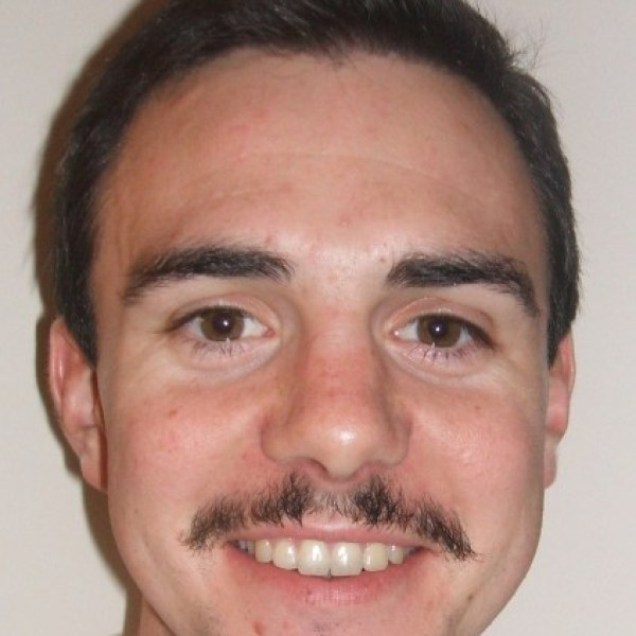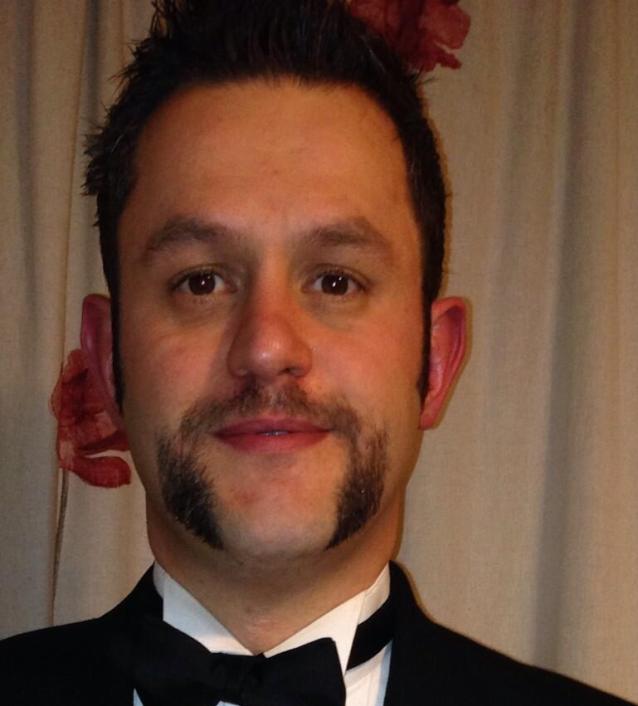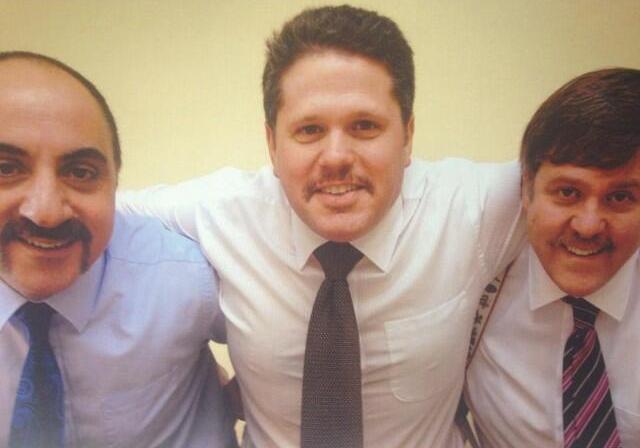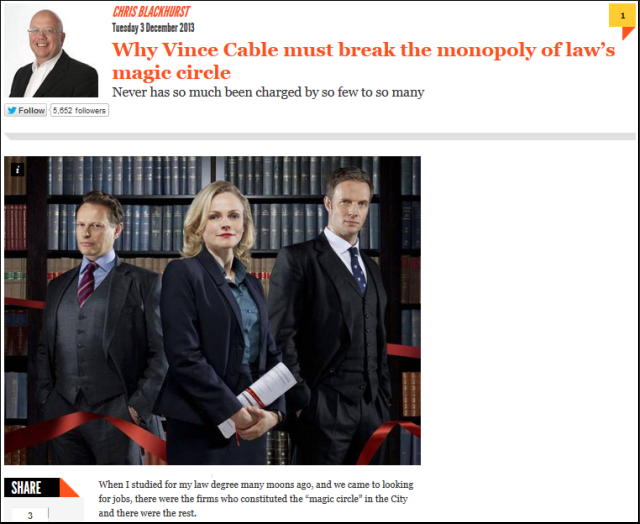WaitroseLaw identifies her least favourite legal personality types — and offers tips on how to handle them
THE TWITTER-MAD BARRISTER
![Barrister-selfie]()
The Bar has traditionally performed a vital social function by siphoning off the most obnoxious Oxbridge grads and corralling them safely in a few square miles in the Temple. There, they are able to bask in the sound of their own voices and revel in cloistered self-importance. Unless you took a wrong turning off Fleet Street on a dark night, they were, before the advent of social media, pretty easy to avoid.
Barristers have, of course, taken to Twitter with remarkable enthusiasm, realising intuitively that it offers the opportunity to share every fleeting thought with a world desperate to listen. No longer confined to droning on in conference long after the biscuits have run out or boring the judge, the Twitter-Mad Barrister can now bombard his mailing list with case updates, Instagram his breakfast, live-tweet his train journey and update his blog all before he even gets to court.
Encouraged, perhaps, by media stars like professional controversialist Barbara Hewson and the inescapable Daniel Barnett, our learned friends now account for almost as much social media traffic as cat memes. Perhaps it's not surprising in today's tough legal market: the combination of a dwindling workload and high-speed chambers internet connection makes it very tempting to while away the hours online. Alas, with legal aid cuts and lorry drivers muscling-in on the work, Twitter-Mad Barristers — and their close relations, Twitter-Mad Barristers (non-practising) — seem set to continue to multiply as long as social media stays free.
THE TOXIC TRAINEE
In these difficult times for those beginning careers in the law, an awareness has dawned among trainee solicitors that any show of weakness could see them consigned to the paralegal scrapheap. Hence the current popularity of inch-thick cotton shirts, obsessively-shined shoes and suits that cost more than a small family car.
The Toxic Trainee strides through the office in a haze of palpable ambition and slightly too much aftershave. His sartorial extravagance is matched only by his relentless self-confidence. Not for him the mundanity of gradually learning on the job; from the first day of his training contract, his will be the loudest voice on any conference call and the chummiest banter with clients. He'll happily proclaim himself an expert on virtually anything, having last felt a quiver of self-doubt in 1997, and within days will have established himself as the firm's most followed tweeter.
Irritatingly, this pushiness seems to endear him to many partners, who are lulled into a false sense of security by his amiability. If they realised quite how fervently he wants their job, they'd hire someone to taste all their food. On the other hand, there's a small wax model of the Toxic Trainee in every fee-earner's desk drawer, festooned with drawing pins in a vain attempt at vengeance for swiping all the best work.
THE ABSENT FRIEND
![absent-friend]()
Every department has one: an equity partner who's been with the firm since the 1890s, and, on the back of a reputation for epic client schmoozing, manages to command annual drawings of a level that continually threaten to plunge his firm into Halliwells-style oblivion.
Like any exotic creature, the Absent Friend is rarely sighted. Once in a blue moon they descend on the office, throwing their PA into a state of panic by asking her to process a stack of expense claims that looks like the galley proof for A La Recherche du Temps Perdu.
A stranger to such arcane practices as sending emails, filing papers and time-recording, the Absent Friend is nevertheless an asset to any quiz team and an incomparable source of gossip — if you can catch them for long enough. Their smooth self-assurance cracks only occasionally — when someone asks a question about the law. If you can establish yourself as their go-to person for any tricky technical questions (like 'What's the Companies Act?'), you'll have made yourself indispensable.
THE RADICAL HUMAN RIGHTS LAWYER
![Marx-meme]()
The Radical Human Rights Lawyer is in denial. Having built his career when government funding for the law was plentiful (and reaped the associated financial benefits), he has managed to preserve a vision of himself as a left-wing student rather than a paid-up member of the 1%.
He'll moan about the "scruffy" area he lives in to the couch-surfing paralegals who work for him gratis, before returning to his £1 million of prime Victoriana on his £2,000 carbon fibre bike. Although his children have 19th century servant's names (Jack, Rosie and Esme are classic examples), he'd be horrified if they didn't get into their first choice school and had to mix with some actual working class people.
At work, the Radical Human Rights Lawyer is a mercurial blend of matey and demanding, as he tries vainly to reconcile his sense of identity with the fact he's earning 20 times your salary. The best approach is to flatter his delusions of Bohemia (try recommending a mezcal bar or low-budget arthouse film) while ignoring the fact that he speaks to you in the same voice he uses to his cleaner and his kids.
THE (SELF-APPOINTED) STYLE EXPERT
![bill-meme#]()
The 21st century legal profession is forward-looking and commercially orientated, welcoming diversity and...oh, who am I kidding? It's full of chauvinists old and new, whose progression from public school to partnership via a spell at one of the fustier Oxbridge colleges has left them incapable of relating to women as human beings, while still being leeringly obsessed with their underwear.
The result: a succession of sartorial dictats which highlight the thin line that female lawyers have to tread to pander to these inadequates without threatening them. Look feminine (flat shoes definitely not allowed), but not too sexy. Look groomed, but not like you care too much about your appearance and, ladies, don't forget to smile! All the while the (Self-Appointed) Style Expert continues dreaming of the day Matron caught him in the shower.
Of course, with women now making up around 60% of newly-admitted solicitors, he can't ignore them altogether and he'll even (grudgingly) dole out some work to them when it suits him. But don't expect to have any client contact unless he wants to dangle an ornament in front of them over dinner, nor that he'll ever hold a serious conversation with you — in fact, best to abandon the idea of conversation altogether, unless you're prepared for him to fail entirely to keep his eyes on your face.
WaitroseLaw is a lawyer with luscious organic selection, impeccable ethics and dinner party skills. She is not affiliated with or authorised by Waitrose.
























































